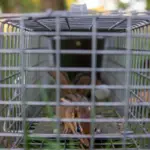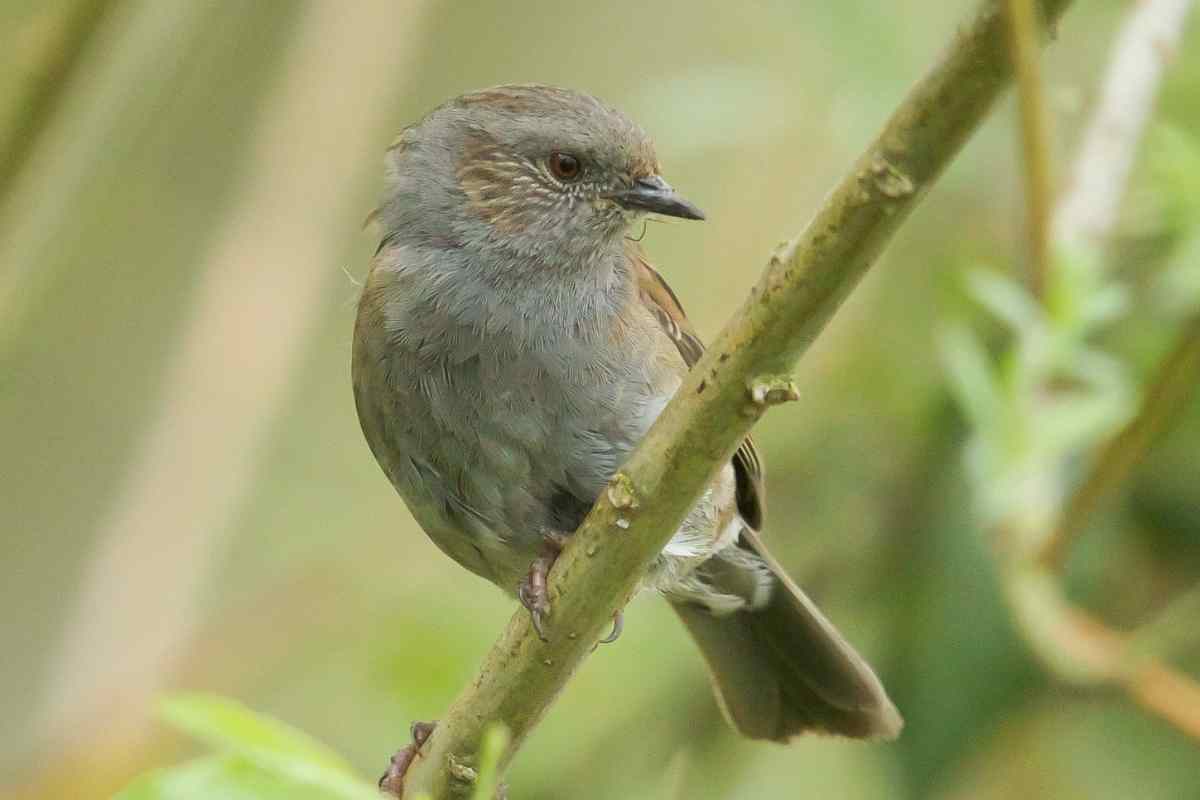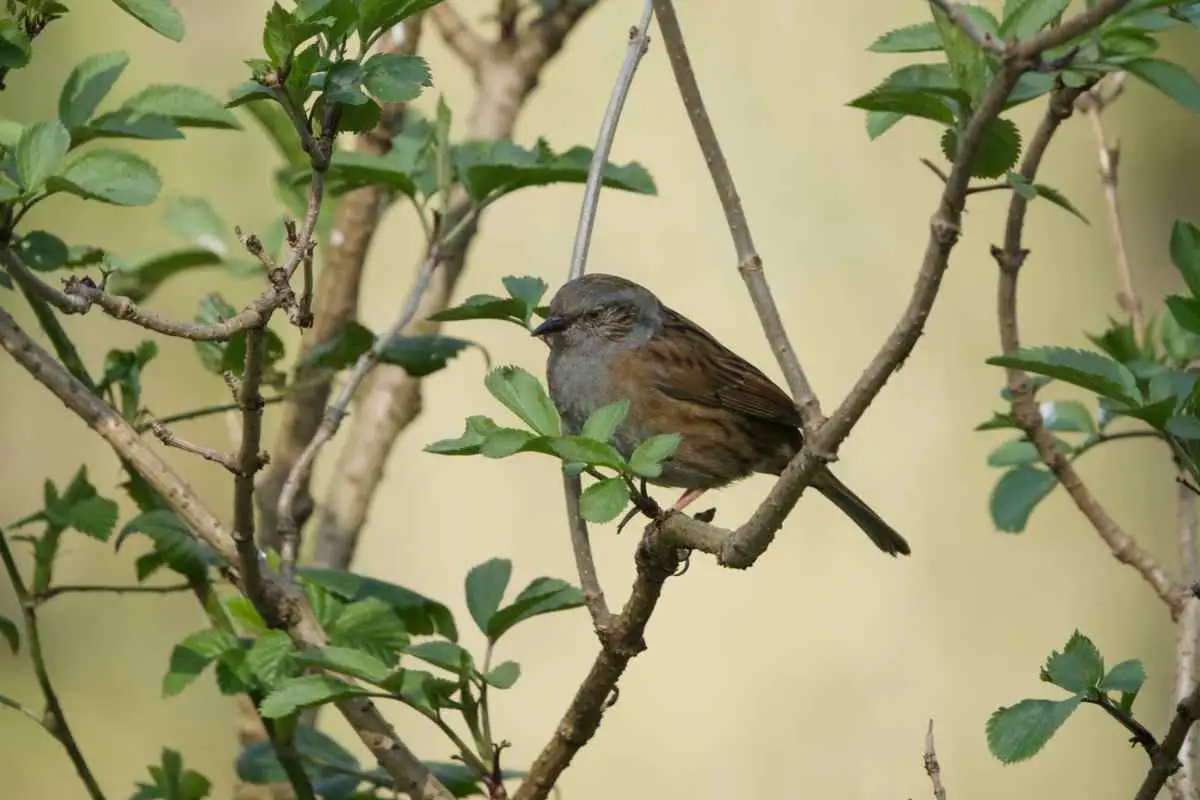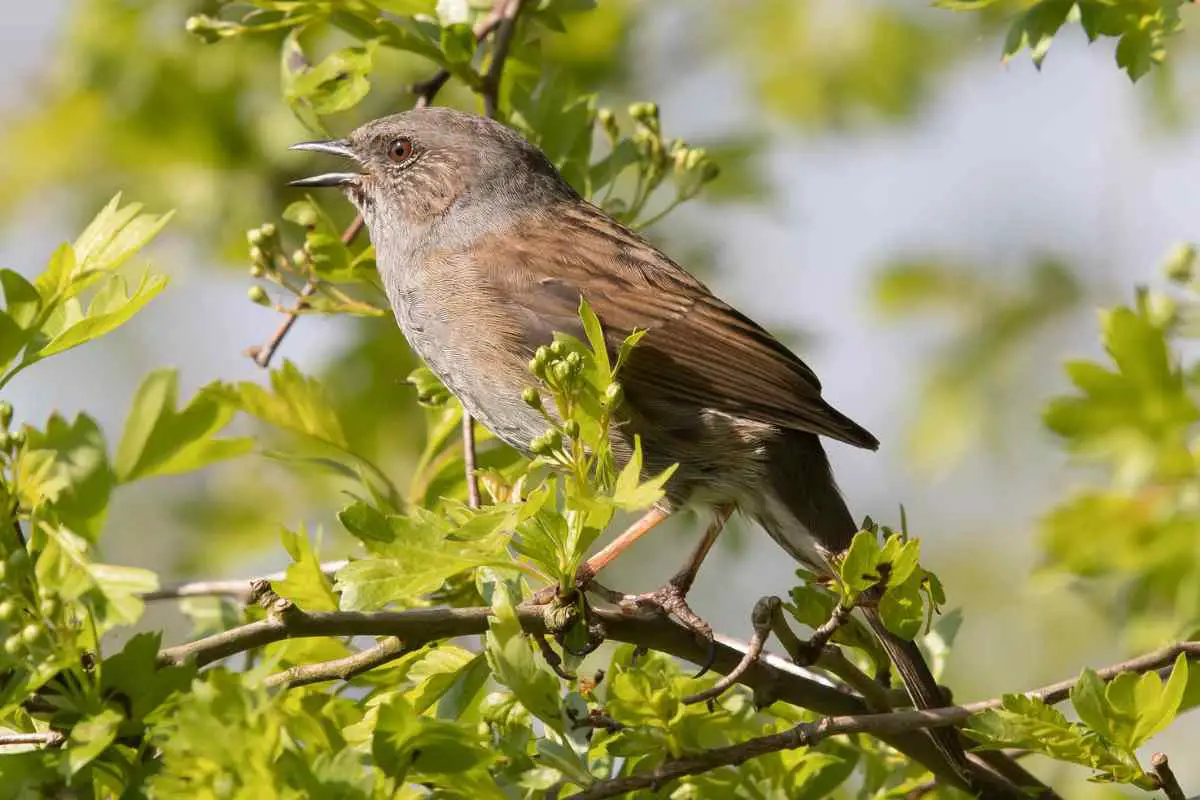Chipmunks are small, striped rodents that are commonly found in North America. They are known for their cute appearance and their habit of storing food in their cheek pouches. But what do chipmunks eat?
Chipmunks have an omnivorous diet, which means they eat both plants and animals. Their diet primarily consists of seeds, nuts, and fruits, but they also eat insects, worms, and even small frogs.
They are known to eat many different types of plant matter, including grass, shoots, and fungi.
The specific foods that chipmunks eat can vary depending on the species and their location.
For example, some chipmunks may prefer certain types of nuts or fruits depending on what is available in their habitat.
Understanding what chipmunks eat is important for those who want to attract them to their yard or for those who keep them as pets.
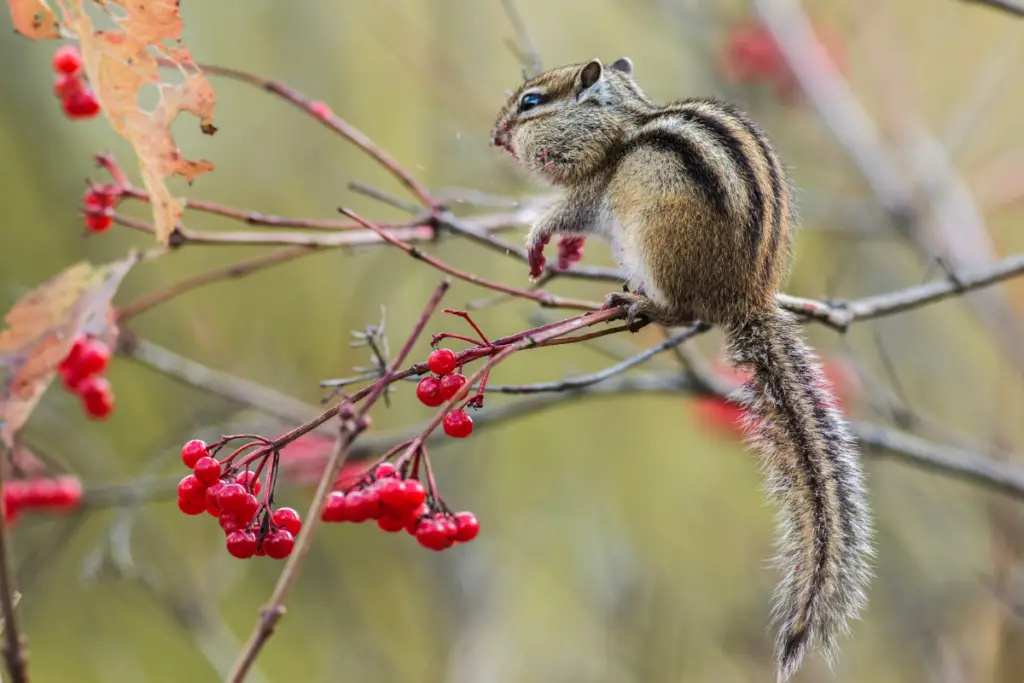
Table of Contents
Natural Diet of Chipmunks
Chipmunks are small rodents that are commonly found in North America. They are known for their distinctive stripes and their ability to store food in their cheeks.
Chipmunks have a natural diet that consists of a variety of foods, including nuts, seeds, fruits, and insects.
Nuts and Seeds
Nuts and seeds are a staple in the diet of chipmunks. They have strong jaws that are capable of cracking open the hard shells of nuts, such as acorns, hickory nuts, and beechnuts.
Chipmunks also eat seeds from a variety of plants, including sunflowers, dandelions, and grasses. They will often store nuts and seeds in their burrows to eat later.
Fruits and Berries
Chipmunks have a sweet tooth and love to eat fruits and berries. They will eat a variety of fruits, including apples, cherries, and grapes.
They are also known to eat berries, such as blueberries, raspberries, and blackberries. Chipmunks will often climb trees to reach fruit and berries that are out of reach on the ground.
Insects and Small Creatures
Chipmunks are omnivores and will eat insects and small creatures when they are available. They will eat insects, such as grasshoppers, crickets, and beetles.
Chipmunks are also known to eat small creatures, including snails, slugs, and earthworms. They will even eat small frogs and bird eggs if they can find them.
In conclusion, chipmunks have a natural diet that consists of a variety of foods, including nuts, seeds, fruits, and insects.
They are opportunistic feeders and will eat whatever is available in their environment.
By understanding their natural diet, we can better understand how to care for them in captivity or how to discourage them from raiding our gardens.
Chipmunks in Urban Settings
Chipmunks are known for their love of nuts, seeds, and berries, but they are also opportunistic feeders. In urban settings, chipmunks may expand their diet to include a variety of food sources.
Bird Feeders and Pet Food
Chipmunks are skillful climbers, and this helps them a lot when scavenging for food sources up in trees and other high places.
Bird feeders can be a great source of food for chipmunks. They will climb up to the feeder and nibble on the seeds that have fallen to the ground.
This can be a source of frustration for bird lovers, as chipmunks can quickly empty a feeder.
Another source of food for chipmunks in urban settings is pet food. Chipmunks may eat pet food from outdoor bowls, especially if the food is left out for extended periods.
This can be problematic for pet owners, as chipmunks can potentially carry diseases that can be transmitted to pets.
Garden Plants and Bulbs
Chipmunks may also feed on garden plants and bulbs. They have a particular fondness for tulip bulbs, which they will dig up and eat. This can be frustrating for gardeners, as chipmunks can quickly destroy a garden.
To prevent chipmunks from eating garden plants and bulbs, gardeners can try using repellents or planting bulbs in wire mesh cages.
However, it is essential to note that chipmunks are persistent creatures and may find a way around these measures.
In conclusion, chipmunks in urban settings may expand their diet to include a variety of food sources, including bird feeders, pet food, and garden plants and bulbs.
It is important to take measures to prevent chipmunks from accessing these food sources to avoid potential problems.
Dietary Impact on Lifestyle
Chipmunks are small, omnivorous rodents that are commonly found in North America. They have a varied diet that includes nuts, seeds, fruits, and insects.
Chipmunks are known for their ability to store food for the winter months, which allows them to survive in areas with harsh winters.
Their diet has a significant impact on their lifestyle, affecting their hibernation, food storage, and reproduction.
Hibernation and Food Storage
Chipmunks have a unique hibernation pattern that is influenced by their diet. They hibernate during the winter months, and their diet plays a crucial role in their ability to survive this period.
Before hibernation, chipmunks eat a lot and store food in their burrows. They store food in their cheek pouches, which can stretch to three times the size of their head.
They also store food in their burrows, which they access during hibernation.
During hibernation, chipmunks rely on their stored food to survive. They wake up occasionally to eat, but they spend most of their time in a state of torpor.
Their metabolism slows down, and their body temperature drops to conserve energy. The food they store before hibernation is crucial to their survival during this period.
Reproduction and Diet
Chipmunks have a high reproductive rate, and their diet plays a crucial role in their ability to reproduce.
Their diet affects their body condition, which in turn affects their ability to mate and produce offspring. A diet that is rich in protein and fat is essential for reproduction.
Female chipmunks have a gestation period of around 30 days, and they can produce up to two litters per year.
The size of the litter depends on the quality of the diet. A high-quality diet can result in larger litters, while a poor-quality diet can result in smaller litters.
In conclusion, the diet of chipmunks has a significant impact on their lifestyle. Their ability to store food for the winter months allows them to survive in areas with harsh winters.
Their diet also affects their ability to reproduce, with a high-quality diet resulting in larger litters. A varied diet that includes nuts, seeds, fruits, and insects is essential for the survival and reproduction of chipmunks.
Human Impact on Chipmunk Diet
Feeding Chipmunks
Chipmunks are omnivores and eat a variety of foods, including nuts, seeds, fruits, insects, and even small animals such as frogs and baby birds.
While they are opportunistic feeders and can adapt to different environments, their diet can be impacted by human activities.
One way humans can impact chipmunk diets is by feeding them. While feeding chipmunks can be a fun activity, it is important to provide them with appropriate foods.
Chipmunks have specific dietary needs, and feeding them foods that are not part of their natural diet can be harmful. For example, feeding them foods high in sugar or salt can lead to health problems.
Impact of Urbanization
Urbanization can also impact chipmunk diets. As human populations grow and cities expand, chipmunks lose natural habitats and food sources.
They may be forced to rely on human-provided food sources, such as bird feeders, which can lead to an unbalanced diet.
In addition, urbanization can introduce new food sources that chipmunks may not be able to digest properly. For example, chipmunks may eat trash or human food waste, which can cause health problems.
Overall, human impact on chipmunk diets can be significant. While chipmunks are adaptable and can survive in different environments, it is important to be mindful of their dietary needs and the potential impacts of human activities on their food sources.
Conclusion
Chipmunks primarily eat a diet consisting of nuts, seeds, berries, and fruits. They also consume insects, fungi, and even small vertebrates occasionally.
Their diet is largely dependent on the season and availability of food in their habitat.
In conclusion, chipmunks are omnivorous animals that have a varied diet, which allows them to adapt to different environments and food sources.
- How to Build a Planter Box for Bamboo: A Step-by-Step Guide
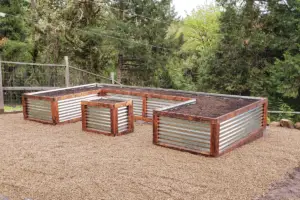
- Can Robotic Lawnmowers Handle Steep Slopes?
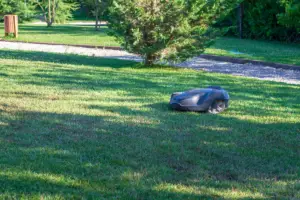
- Do You Need a Specific Lawn for a Robotic Lawnmower? Expert Advice

- Are Robotic Lawnmowers Safe for Pets and Children? Safety Features of Robotic Lawnmowers

- Why Use Robotic Lawnmowers? Advantages of Using a Robotic Lawnmower
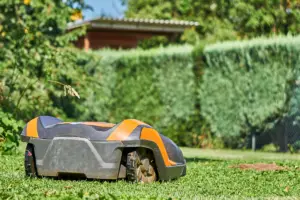
- Is the GARDENA SILENO City 300 Cordless or Corded? A Clear Answer











